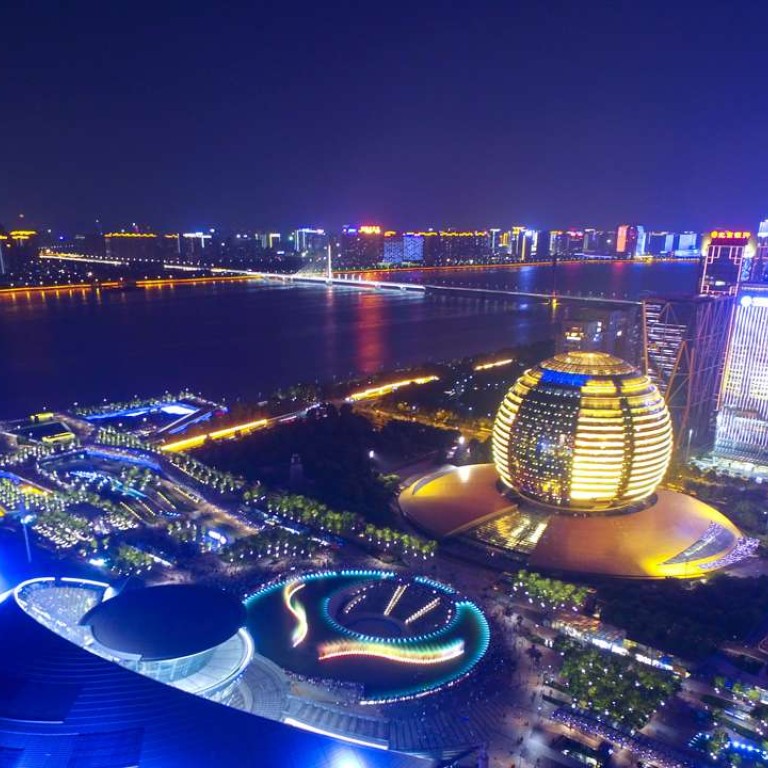
New | B20 urges governments to tear down trade barriers; China under fire for ‘unwelcoming’ policies
WTO’s trade facilitation agreement could cut trade costs by 12.5 to 17.5 per cent
Before Chinese President Xi Jinping, US President Barack Obama and other leaders of the world’s 20 largest economies sat down for their annual confab this weekend, 800 businesspeople from the same member countries called the B20 set a sombre tone for them: back up your words with deeds and tear down trade barriers.
The G20 governments must do more to free up trade and resist the increasing opposition to globalisation as trade ministers have already committed to ratifying the World Trade Organisation’s trade facilitation agreement by the end of this year.
“A fundamental challenge we are facing is to restore public trust,” said the Australian Prime Minister Malcolm Turnbull as the B20 conference wrapped up in Hangzhou on Sunday. “Protectionism is a road we could not afford to go down.”
The B20 met at the golden globe-shaped Hotel InterContinental on the banks of the Qiantang river, which is opposite the Hangzhou International Expo Centre where G20 leaders are meeting on Sunday and Monday.
The B20’s two-day meeting yielded a total of 20 policy recommendations for government leaders, including the removal of trade barriers, optimising financial regulations and facilitating investments. They were submitted to Xi during the meeting’s opening.
The reality of global trade is more dire than the surroundings of the conference centres amid Hangzhou’s verdant scenery.
China, the host of this year’s G20 and B20 conferences, was not spared from criticism.
The European Chamber of Commerce in China issued a public petition on Saturday following Xi’s opening speech calling on the G20 to build an open and transparent trade and investment structure, urging the Chinese government to give foreign companies equal treatment on investment regulations.
“This is particularly important in view of the ease with which Chinese companies continue to acquire assets in Europe in areas where European Union companies do not even dare to consider investing in China,” the letter said.
Globally, the spaghetti bowl is getting worse ... If you look at the system, the barriers are getting higher
Outward investments by developed countries among the 35-member Organisation for Economic Co-operation and Development last year were 40 per cent short of their 2007 peak before the financial crisis, according to the group’s data.
While global direct investments declined, China’s outbound investment surged 62 per cent to a record US$100 billion in the first seven months of this year, according to China’s Ministry of Commerce.
An “asymmetric investment environment” existed in China, said Gavekal Research’s economist Arthur Kroeber.
“China in fact runs one of the most restrictive regimes in the world for foreign direct investment, according to the OECD, and is far more closed than other big emerging economies including Brazil, India and Russia,” Kroeber said. “China is especially unwelcoming to investment in the fast-growing service sectors.”
There were substantial benefits in cutting trade barriers, said Turnbull, citing research by the OECD, an economic grouping founded in 1957 that does not include China.
“Recent research tells us that the full implementation of the [trade facilitation agreement] could save trade costs by more than 10 per cent for OECD countries and by 12.5 to 17.5 per cent [globally],” he said.
In the middle of all the free-trade discussions, the US-led Trans-Pacific Partnership and the EU’s Transatlantic Trade and Investment Partnership, both of which exclude China, sit uncomfortably. The establishment of these trade pacts draws more ring-fences around members to the detriment of others, raising trade barriers overall.
“Globally, the spaghetti bowl is getting worse,” said Chris Southworth, secretary general of the International Chamber of Commerce UK and a B20 delegate. “If you look at the system, the barriers are getting higher, and the TPP and the TTIP, which may or may not happen, could bring serious trouble.”
Restrictions are closely felt by Chinese companies and businesspeople, including Sinochem Group’s chairman Frank Ning Gaoning. Before he was assigned to run Sinochem, Ning ran China’s largest food importer and trader Cofco Group, where he led a US$3 billion acquisition of Noble Group’s agricultural products trading unit and Dutch grain trader Nidera.
“Globally, cross-border trade is becoming more difficult, declining and lagging gross domestic product growth,” Ning said.
Trade and investment barriers were particularly hard felt by small and medium-sized companies, which often lacked the resources or lobbying power to lift those restrictions, said Diane Wang, co-chair of the B20’s SME development task force. She is also chief executive of Chinese electronic trade company DHgate.
“Companies, particularly the small and medium-sized companies, are in great need for easier cross-border trade settlement,” she said.
The internet may provide a solution to break down trade barriers as more and more businesses take their products and services to the worldwide web, breaking down the need for customs barriers.
“We are living at a crucial time when people dislike globalisation or free trade,” said Jack Ma Yun, founder and chairman of Alibaba Group Holding, which owns the South China Morning Post. “As businessmen, we have to stick to our belief and insist on leading the world to the future of globalisation and free trade because we are entering into an new era marked by the internet and new technology.”

